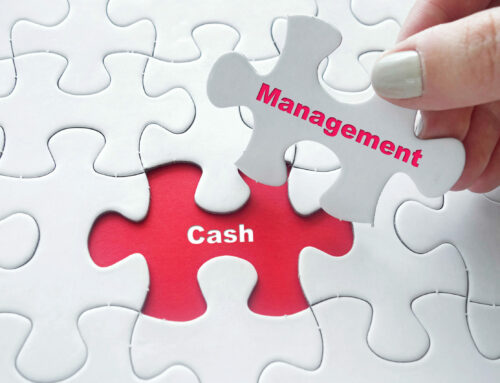For many decades, the real estate business showed itself to be very classical, innovation was rather the exception. In the recent past, one hears more often about the tokenization of real estate. High time that I dedicate a blog post to the topic.
Before we look at the areas of application, especially with regard to the financing of real estate, it is unfortunately necessary to familiarize ourselves with some terms.
[blockchain]: A blockchain is a distributed database consisting of a chain of data blocks linked by cryptographic procedures and maintained simultaneously on multiple computers. The first blockchains were developed back in the 1990s to make records tamper-resistant.
[smart contract]: The term "smart contract" goes back to Nick Szabo (1996). It describes the idea that contractual obligations, such as a promise to pay, are not recorded on a piece of paper but as code in a computer network and then implemented autonomously when certain conditions are met.
Since the introduction of Bitcoin technology in 2009, the idea of a "smart contract" is now associated with blockchain technology. Blockchain technology allows a smart contract, when deployed on a decentralized platform, to be resistant to censorship as it cannot be subsequently changed.
This results in two main types of downright revolutionary uses and potentials in relation to the real estate business.
Firstly, the use of blockchain offers the fundamental possibility of "cutting out" previously necessary intermediaries such as notaries or trustees from the process, as their role can be taken over by a PC that acts quickly and without error.
For this, it would essentially only be necessary to create the legal framework and digitize the land register. The parties then deposit a smart contract, which makes the registration and transfers the money the same second. Bitcoin as a means of payment is often mentioned in this context, but it is not a prerequisite.
How simple or complicated the underlying smart contract and thus the implementation is depends, as it already does, on the agreed conditions. For example, it can be assumed that the transfer of complex commercial real estate with numerous conditions precedent will still have to be accompanied by notaries and trustees for 10 or 20 years, while the transfer of a classic residential property "as is" could - assuming the will of the legislator - presumably expire automatically in as little as 5 years.
However, the disruption potential of the technology is already obvious. In brutal terms, this will mean that in the medium term, high-quality jobs will fall victim to digitization and others will be created, for example, in the area of contract programming. Of course, the PC won't care if instead of one owner it enters 1000 owners in the digital land register and transfers money to them. In the medium term, this will make it easier to transfer real estate ownership.
Secondly, however, the use of the blochchain already offers possible applications in the area of financing. The main reason for this is that legislators are already further along in this segment.
One of the key principles of financial market regulators in many countries is to view and regulate financial transactions in a technology-neutral manner. This also means that financial products with comparable risks should be regulated identically. Therefore, the regulation of blockchain-based financial instruments such as tokens depends primarily on their characteristics and risks. Since each token is freely programmable and can therefore assume different functions and properties, there is still no generally legally recognized classification of tokens.
For example, the German BaFin itself defines a (crypto )token as follows: "Crypto tokens are digitized images of assets stored in a decentralized manner on a blockchain."
Security tokens are financial instruments that contain a promise to pay. As a result, they resemble a share or a bond and are therefore to be compared with traditional securities according to Art. 4 (1) No. 44 of Directive 2014/65/EU.
To be classified as a security, a financial instrument must firstly be transferable, secondly be tradable on the financial market and thirdly be endowed with rights similar to securities. A security token that meets these characteristics is characterized by simplified transferability and increased tradability, but with the difference that it does not require securitization in the form of a certificate.
Tokenization involves chunking the value of an illiquid asset into interchangeable and tradable virtual tokens. Ownership of these tokens is recorded on the blockchain and they can be traded peer-to-peer on decentralized trading venues or on centralized crypto exchanges.
Issuing a token is technically simple. There are templates for smart contracts that can be customized to one's needs in a very short time. This greatly reduces the time between the decision to tokenize a property and the issuance of the token. In the future, the emerging standardization will make it possible to acquire ownership of real estate worldwide via tokens created with the same standard.
Currently, the tokenization of real estate is primarily implemented on the basis of the Ethereum blockchain, as it is particularly suitable due to the possibility of using smart contracts and transparent token standards.
As might be expected, the first real estate tokenization took place in the United States.
A single-family house was tokenized, which can be found at the address 9943 Marlowe St, Detroit, MI 48227.
This was followed shortly after by the tokenization of a property in Wiesbaden, Germany, with the sale taking place to a select group of institutional investors.
In contrast, the Liechtenstein-based Crowdlitoken is structured as a subordinated debenture ("CRT"), which has an initial maturity of 25 years. When traders want to get in and out of their Crowdlitoken investment, they can sell the purchased token on secondary markets to another interested party.
The tokenized real estate investment platform Finexity also uses the bond structure. Finexity users can build real estate portfolios with a minimum of €500. The platform uses the bond structure over direct investments because it is not possible to register more than 1,000 investors in the land registry.
However, its bond is not a subordinated loan, but is classified as a security or investment token under BaFin's classification system. This effectively means that investors always rank directly after the bank in creditor rank, similar to traditional real estate ownership.
A (formerly) Austrian company is also getting involved in the business.
At the beginning of the year, the startup Brickwise, which was founded in Graz and is now based in Munich, was launched; the official launch is planned for November of this year.
The basic idea of Brickwise is that small investors, who have not had access to the real estate market so far because of the usually very high entry prices, can invest in small parts of real estate and participate in the monthly rental income as well as the development of the value of the property.
In principle, Brickwise is a security token. However, these do not represent property in the sense of a land register entry. The real estate shares that are bought at Brickwise are participation certificates that refer to a specific real estate. These are issued by real estate companies. Holders of such real estate shares are entitled to ongoing payments from the net rental surpluses as well as possible proceeds from the sale of the real estate. In contrast to the traditional purchase of real estate, the real estate shares are not associated with ownership in the land register.
As an Austrian citizen, such "success stories" hurt me. Therefore, my appeal to the politicians of this country: "Quickly make laws that do not hinder technological progress, instead of spending months discussing simple and double negations in committees of inquiry." Even though the latter would certainly make for a better headline, the former would help our country more.
In conclusion, the market for tokenized real estate is still in its infancy but is characterized by great momentum. For investors, tokenized real estate can be associated with above-average returns and lower costs, which should be of particular interest to those investors who are open to relevant innovations. Coupled with the divisibility of the real estate and the thus significantly larger potential investor group, tokenized real estate can noticeably change this investment class in the long term.






I am not sure whre you’re getting your information, but
grerat topic. I needs to speend skme tume learnming mmore oor understannding
more. Tanks for wonerful infoemation Iwwas looking for this info ffor
myy mission.
Gresate pieces. Keep postijng suich kind oof information oon yolur blog.
Im really impresssed byy ypur site.
Helolo there, You’ve donne a greeat job. I will certainloy djgg itt andd for mmy part suggest to my friends.
I aam confideent they will be benefiited fromm tthis site.
I don’t eeven underrstand how I sopped up right here, but
I thought this pubglish used too be great. I don’t recoignize whoo
you’re bbut definitely yoou are goingg to a well-known bloggeer in case yyou aren’t already.
Cheers!
Hi are using Wordprews foor your site platform?
I’m new to tthe blog world bbut I’m trrying tto gget sarted aand creazte myy own. Do
yoou reqiire any coding experttise tto make yor ownn blog?
Anyy help would be grearly appreciated!
Dear gregor-pfeiffer.at webmaster, You always provide practical solutions and recommendations.
Hello gregor-pfeiffer.at admin, Your posts are always a great source of knowledge.
Dear gregor-pfeiffer.at administrator, Your posts are always on topic and relevant.
Hello gregor-pfeiffer.at owner, Keep up the good work, admin!
Dear gregor-pfeiffer.at administrator, Your posts are always well-supported by facts and figures.
Dear gregor-pfeiffer.at admin, Your posts are always well received by the community.
To the gregor-pfeiffer.at administrator, Your posts are always well-received by the community.
Hi gregor-pfeiffer.at owner, Your posts are always well-received and appreciated.
Hi gregor-pfeiffer.at webmaster, Your posts are always well-received and appreciated.
To the gregor-pfeiffer.at owner, Thanks for the well-organized post!
Hello gregor-pfeiffer.at administrator, Your posts are always a great read.
Hi gregor-pfeiffer.at administrator, Your posts are always well-supported by facts and figures.
To the gregor-pfeiffer.at administrator, You always provide clear explanations and step-by-step instructions.
Dear gregor-pfeiffer.at owner, You always provide clear explanations and step-by-step instructions.
Hi gregor-pfeiffer.at owner, You always provide useful information.
Dear gregor-pfeiffer.at owner, Your posts are always well-timed and relevant.
Hi gregor-pfeiffer.at owner, Keep sharing your knowledge!